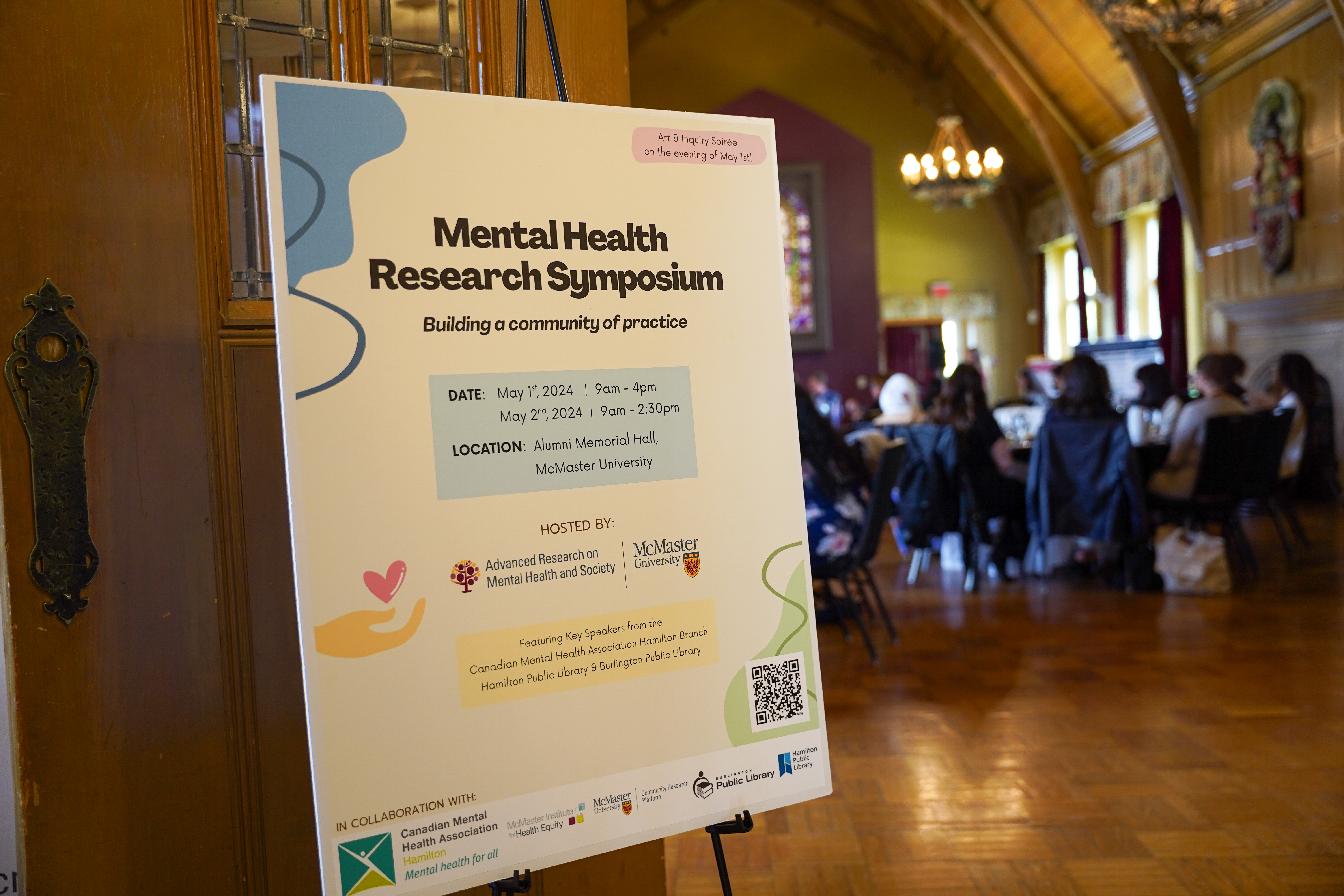Peer support is a valuable mental health service, research finds

Peer support services offered by the Canadian Mental Health Association’s Hamilton Branch offer an “overwhelmingly positive experience,” according to a new McMaster study that offers best practices to help them scale up.
“There’s so many people that want some sort of help, but they have no idea who can help them or where they are … Somebody helped me at one time, and I wanted to be able to pay it back,” says Paul, an experienced peer support worker with CMHA Hamilton and participant in the study.
Co-led by Rachel VanEvery, a PhD student in the department of health, aging and society, and CMHA Hamilton, the study was developed to evaluate CMHA Hamilton’s growing program of peer support services and develop best practices for the organization to use moving forward.
CMHA Hamilton’s director of mental health court support and peer support services Mary Ellen Ruddell and CEO Sue Phipps worked with McMaster’s Community Research Platform (CRP) to arrange the research partnership.
“One of the benefits of having Rachel come on board with the research methodologies through the CRP was that we were able to align the research with CMHA’s values including dignity and respect, person-centred care, and sustainability,” says Ruddell.
With funding from a MITACS Accelerate grant, VanEvery interviewed four peer-support workers and 18 recipients of peer support.
“It was an overwhelmingly positive experience for peer support recipients and workers,” says Ruddell.
“For peer support recipients, they don’t feel alone, they see a path forward, they see hope. It also helps reduce stigma for peer-support workers because they can see the value of their lived experiences playing out in the recovery of another human being. It’s very powerful.”
In the Intensive Supports Pilot designed for people living in encampments during the pandemic, CMHA Hamilton has seen 16 peer-support recipients who were living on the streets secure housing with tailored supports, thanks in large part to the intervention of peer-support workers.
“Peer-support workers are able to offer lived expertise,” explains VanEvery. “They know about substance use, incarceration, justice, homelessness, housing insecurity, trauma and mental health. Not only can peer support recipients relate and have a role model, but they have someone to help them navigate services in Hamilton that meet their needs.”
Reflecting on their experiences, peer support workers took pride in the unique role they get to play in recipients’ journey toward recovery.
“I’ve been where they are, and it’s like truly being able to meet them where they’re at and [knowing] everybody’s life is different,” says Mike.
Misty, another peer support worker, says her job is “to remain supportive and just keep reminding [recipients] what their worth is and how strong they are and how far they’ve come.”
As CMHA Hamilton prepares next steps, Ruddell summarizes their goal as scaling-up and reaching out: “Research brought a level of validation to peer support services and to our agency for seeking out this funding.
“Now we can say, ‘Yes, we’re doing best practice.’ The research has solidified a way forward and given us the evidence we need to seek out further funding opportunities.”
On Nov. 30, peer support worker Misty will join VanEvery to co-present the findings of the research for CMHA Hamilton stakeholders and colleagues throughout Hamilton.
Members of the public are invited to attend the presentation to hear directly from peer support participants and learn more about the best practices that came out of the research. Event registration is now open.
Events, Research UpdatesRelated News
News Listing

May 29, 2024


